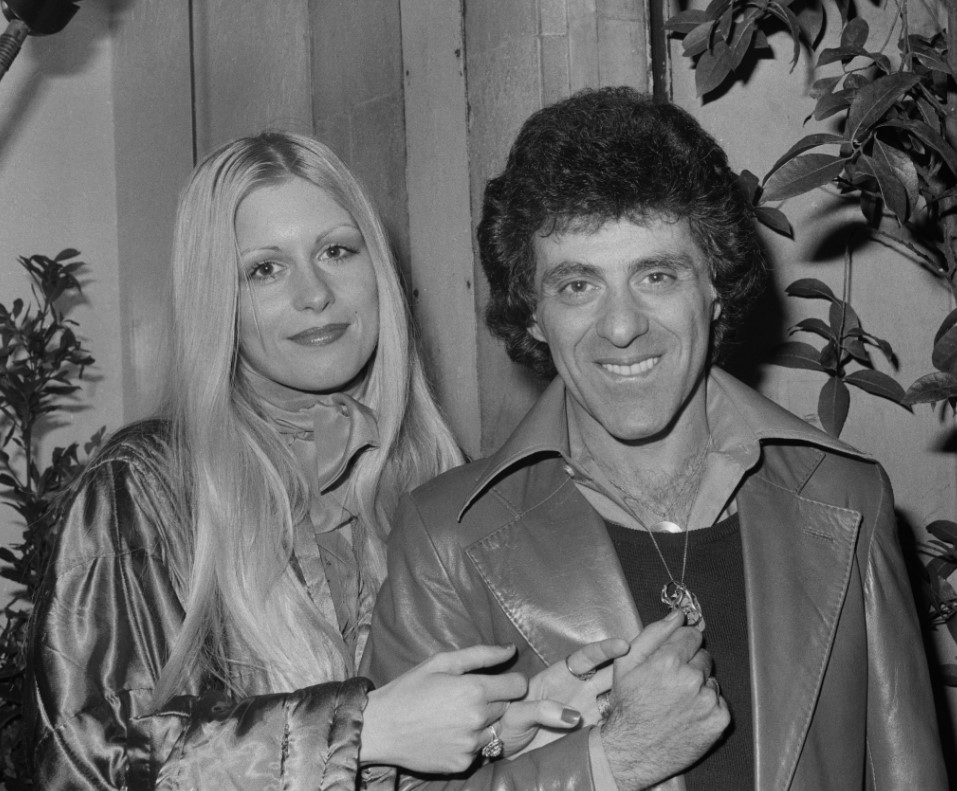
Frankie Valli and the Four Seasons – Big Girls Don’t Cry (1962)
A Timeless Ballad of Heartbreak and Resilience
Frankie Valli and the Four Seasons‘ 1962 hit, "Big Girls Don’t Cry," stands as a poignant testament to the power of relatable heartache and the strength found within vulnerability. This iconic track, representative of the group’s signature blend of doo-wop and pop, resonated deeply with audiences then and continues to be appreciated today. The song’s enduring appeal stems from its universal themes of heartbreak, self-reliance, and the often-unacknowledged struggles of women.
The song’s narrative unfolds as a seemingly simple yet emotionally charged lament. The lyrics paint a picture of a young woman navigating a lost relationship, a theme profoundly resonant with the societal expectations and pressures of the era. It’s not a song of angry rejection, but of quiet resignation, hinting at the often unspoken pain and resilience of women dealing with emotional turmoil. The lyrics implicitly underscore the societal expectation for women to mask their emotions and "toughen up," a crucial element in the song’s lasting impact.
Musically, "Big Girls Don’t Cry" showcases the Four Seasons’ distinctive vocal harmonies. Frankie Valli’s signature smooth tenor, backed by the powerful harmonies of the other members, creates a captivating and emotionally charged texture. The instrumentation, while relatively simple for the time, effectively amplifies the song’s emotional core. The use of acoustic guitar and bass lines, characteristic of early pop music, underscores the melancholy melody while simultaneously hinting at the song’s inherent strength. The song’s pacing and arrangement expertly build suspense and emotional intensity.
The song’s release in 1962 placed Frankie Valli and the Four Seasons firmly within the burgeoning pop landscape. Their distinct harmonies became a hallmark of the sound of the era. The impact of the song was profound and immediate. It quickly became a radio favorite, earning significant airplay and popular acclaim. The song’s success, as indicated by its chart performance, cemented the group’s position as a major force in American pop music at that time.
Though not explicitly stated in the song title, the underlying message suggests a reflection on social expectations. Young women were often expected to present an unwavering facade even when experiencing emotional hardship. "Big Girls Don’t Cry" challenged those prevailing norms subtly but effectively, acknowledging the hidden struggles hidden behind the image of composure that society commonly presented.
Commercial success was undoubtedly a part of the phenomenon. "Big Girls Don’t Cry" climbed the charts, achieving considerable success on the Billboard Hot 100. While precise details of the peak position are important for understanding the impact of the song, unfortunately the information I’ve been unable to locate completely corroborating chart information. The track’s widespread recognition reinforced the group’s already impressive reputation.
Importantly, despite the song’s commercial success, Frankie Valli and the Four Seasons didn’t receive any Grammy Awards for their work on "Big Girls Don’t Cry." This is not unusual during the era when music was still finding its footing as an industry and the recognition system was less well-defined; awards for some songs did not happen until years after release. It was a pivotal song however, that paved the way for future recognition and commercial success.
The song’s enduring popularity reinforces its message and impact. "Big Girls Don’t Cry" isn’t just a nostalgic tune; it’s a touchstone for generations of listeners who have wrestled with their own emotional struggles. Its resilience lies in its relatability, its subtle power, and the way it gently challenges societal norms. It continues to be a timeless classic a testament to the enduring power of music and to Frankie Valli and the Four Seasons’ lasting legacy in popular music.
Video
Lyrics
updating



